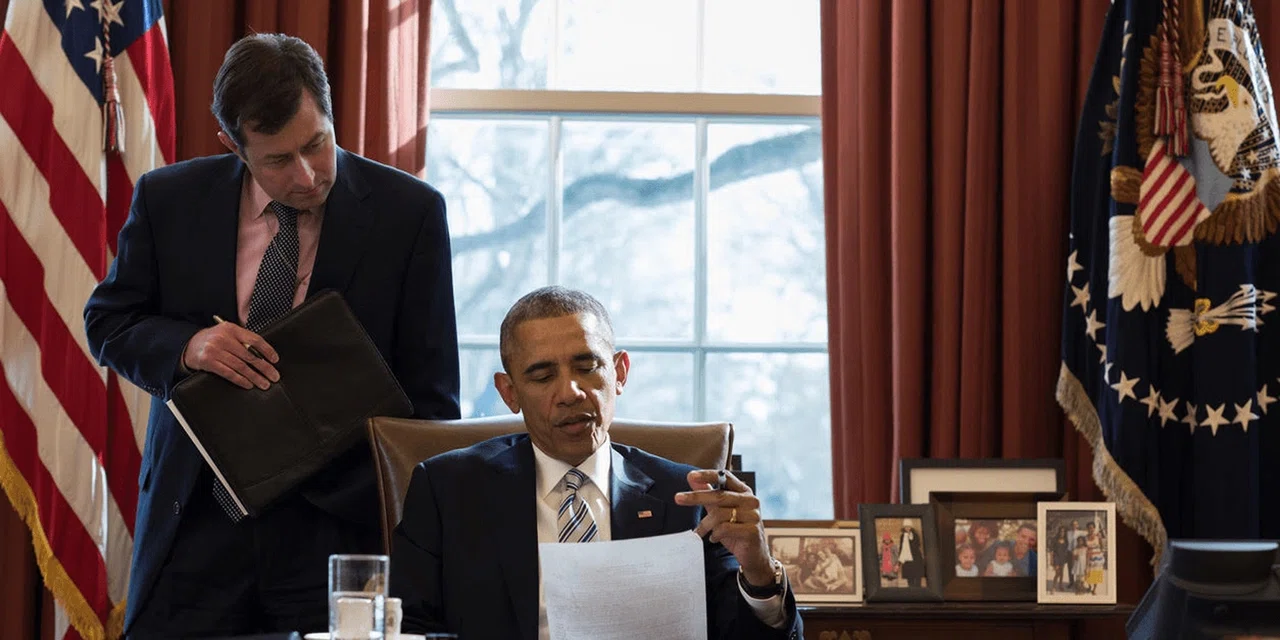



Close
result
FOREWORD
What I learned from a White House Chief of Staff
What I learned from a White House Chief of Staff
Terry Szuplat
3 min read

Terry Szuplat, former speechwriter for President Barack Obama and bestselling author of Say It Well, says mutual respect and deep listening are at the heart of leadership partnerships.
In my small, windowless office in the basement of the West Wing – below the Oval Office — the knock on the door would come without warning. And then he’d poke his head in, asking ‘Do you have a minute?’ It was President Obama’s tireless chief of staff, Denis McDonough.
Often, Denis would be holding a copy of one of the president’s upcoming speeches that I’d worked on. He didn’t have to come down to my little office himself to explain his edits to the speech. He could have sent one of his multiple assistants. And no one would have blamed him. Being a president’s chief of staff is one of the hardest—and most thankless—jobs in government.
And yet, Denis always made a point to bring his edits himself. To walk me through them. To explain his thinking. To make sure I understood. Of course, he could have simply demanded that I make the changes – he was the chief of staff! But he knew one of the secrets to effective relationships, especially at the highest levels of any organisation: mutual respect and deep listening.
By coming to my office himself, Denis showed that he respected me and my work. Even more, he often asked, ‘What do you think?’ And it wasn’t a courtesy. He genuinely wanted to know if I agreed with his suggestions. If I didn’t, he heard me out. And then we’d work through the language until we were both comfortable that we had captured both the president’s vision, values, and voice. (Often after a speech, he’d even take time from his busy schedule to send a hand-written thank you note – notes that, as staffers, we came to cherish as the simple yet profound expressions of gratitude that they were.)
In my nearly thirty years as a speechwriter – at the Pentagon, on Capitol Hill, in the private sector, and in the White House – I’ve been fortunate to work with and learn from countless chiefs of staff. It’s widely understood that organisations often take on the personality of their leaders—the president, prime minister, CEO, or executive director. It’s true of the chief of staff as well. More than anyone else, other than the principal, the chief of staff shapes whether the organisation is defined by a spirit of cooperation or unhealthy competition, trust or suspicion, inclusion or exclusion.
That’s why I was grateful for the opportunity to share the lessons of my book, Say It Well, with members of The Chief of Staff Association early this year—to share what I learned about effective leadership and communication from President Obama and our West Wing team, including leaders like Denis McDonough. And it’s why I was honoured to be asked to contribute the foreword to this issue of The Chief of Staff journal.
As chiefs of staffs, your relationship with your principal – and with your staffs – will go a long way toward determining the success of your organisation. I wish you all the best in your work. And the next time you have edits to the boss’ speech, consider taking a moment to walk your changes down to the speechwriter yourself. And when the speech is over, perhaps express your gratitude with a thank you note. Your teams will treasure it, and you’ll send a powerful message throughout your organisation that mutual respect and deep listening is everybody’s job.
Terry Szuplat


Author Bio
Terry Szuplat
Writer
Terry Szuplat is a sought-after speaker and trainer and the author of the national bestseller Say It Well: Find Your Voice, Speak Your Mind, Inspire Any Audience in which he shares the public speaking lessons he learned as one of President Barack Obama's longest-serving White House speechwriters. From 2009 to 2017, Terry served as a special assistant to the president and as a member of the National Security Council staff, and from 2013 to 2017 he was the deputy director of the White House Speechwriting Office. Today, Terry runs his own speechwriting firm, Global Voices Communications, and he teaches speechwriting at his alma mater, American University's School of Public Affairs. He lives outside Washington, D.C. with his wife and two children.





